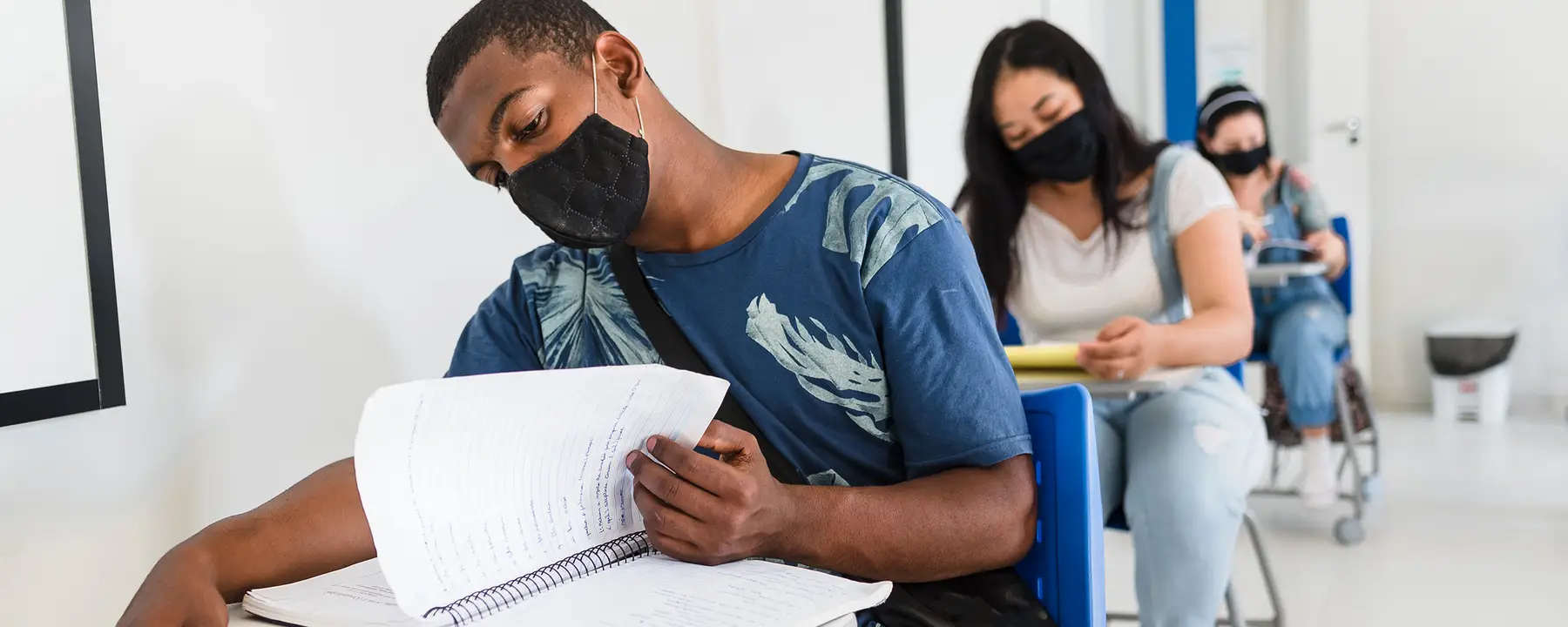After a critical pivot to remote work, our help desks continue to meet the need for vital education data
The COVID-19 pandemic has transformed and challenged the working world for many employees across the United States, including those at RTI’s Research Operations Center (ROC), where the National Center for Education Statistics’ (NCES) Integrated Postsecondary Education Data System (IPEDS) and National Postsecondary Student Aid Study (NPSAS) survey help desks are located.
RTI operates the IPEDS and NPSAS help desks and is responsible for conducting study surveys and responding to related inquiries. With spring being one of the busiest periods of the data collection year, staff at the ROC faced the challenge of balancing increased call traffic, while in the transition to working remotely due to COVID-19. Going above and beyond, both the NPSAS and IPEDS help desk experts continue to manage these changes during the public health crisis while keeping up with data collection demands.
Uninterrupted IPEDS data collection
IPEDS, led by RTI for more than 20 years, gathers information from every college, university, and technical and vocational institution that participates in federal student financial aid programs. These institutions report data on enrollments, program completions, graduation rates, faculty and staff, finances, institutional prices, and student financial aid.
The IPEDS help desk operates year-round from the ROC and was busy performing its services until March 18, 2020, when the call center closed due to the impacts of COVID-19. With little time to prepare or plan, RTI quickly collaborated with their client, NCES, to continue providing consistent data-collection support despite staff transitioning to working remotely.
Upon shutdown, RTI informed IPEDS stakeholders of the plan to convert the help desk to an email only service while staff prepped to provide a fully operational remote help desk. Six business days after the ROC’s closure, and without an interruption in service, the IPEDS help desk was fully operational virtually with both phone and email availability. During this time frame, RTI staff responded to over 500 emails, with all communications being answered within one business day of receipt. Overall, there was minimal impact on the spring data collection resulting from help desk availability issues.
Thank you for all the steps RTI has taken to adjust their operations and keep IPEDS supported and moving forward. I was thrilled to get the news last week that the IPEDS Help Desk was fully functional and once again taking calls. " —Ross Santy, Associate Commissioner of NCES’ Administrative Data Division, concerning RTI’s handling of the COVID-19 pandemic.
Providing reliable support to NCES during this time was crucial. IPEDS is a mandatory study for the 6,400 institutions that currently participate in Title IV Federal Financial Aid programs, and non-compliance can result in large fines or loss of aid eligibility. Not only is the collection of this data high-stakes, but the ROC closure occurred during one of the busiest periods of the data collection year—right before the spring deadline for institutions to submit their data without penalty.
We’re all dealing with a lot of unexpected change these days and that certainly extends to every postsecondary institution submitting data to IPEDS. It is great to have the Help Desk fully functional and ready to take phone calls and talk with representatives from institutions.” —Santy
Due to COVID-19, NCES has extended the spring deadline and is providing the opportunity for institutions to submit their data by Fall 2020. Help desk agents continue to operate remotely to provide reliable and valuable assistance to IPEDS data providers.
Transition to NPSAS remote help desk
Pursuing higher education is foundational for many Americans’ lives and careers, and, since the federal government sources many grants and loans for students, they have an interest in understanding how people pay for college. NCES has tracked the portfolio of grants, loans, personal savings, and other means students and families use to finance postsecondary education since 1987—uncovering trends that influence college enrollment, completion, and labor market outcomes.
In partnership with NCES, RTI has conducted NPSAS every 3 to 4 years since 1996, compiling a comprehensive research data set based on student financial aid records from the federal government, states, postsecondary institutions, and private agencies. This data, consisting of approximately 250,000 student records and 150,000 student surveys in the 2020 collection cycle, provides updated information on strategies for financing college.
The NPSAS help desk had begun student interview data collection when the coronavirus prompted the work from home mandate, about one month into the 2020 data collection. Despite the numerous impacts COVID-19 had on help desk staffs’ personal lives, the work of the help desk never stopped. Rather than halting operations during this transition, calls were directed to project staff instead of the help desk for two weeks while employees adjusted to remote work.
This short interim period where project staff managed calls gave sixty help desk staff the chance to set up and adjust to working away from the closed call center. Only two weeks after the ROC closed, NPSAS data collection resumed at full capacity with help desk workers operating remotely. Since the call center closed, virtual staff have completed phone interviews with nearly 2,000 sample members. Despite the impacts that COVID-19 has had on working life, the help desk staff are working diligently to ensure that NPSAS data collection will be completed by December 2020.
Meeting education-related data demands during COVID-19
RTI has been NCES’ prime contractor for the IPEDS and NPSAS programs for years, and the uncertainty associated with the ongoing pandemic has not diminished our dedication to improving the human condition by continuing to gather fundamental education-related data. This public health crisis has demonstrated the resilience of our staff, the flexibility of our programs, and our commitment to supporting our clients. Learn more about RTI’s commitment to these data collection surveys here: IPEDS & NPSAS.
- National Center for Education Statistics (NCES)



